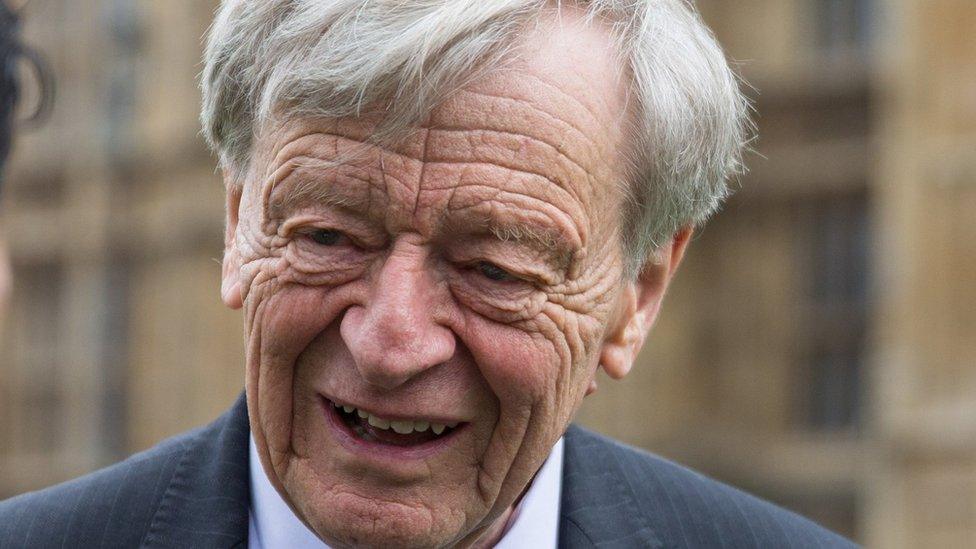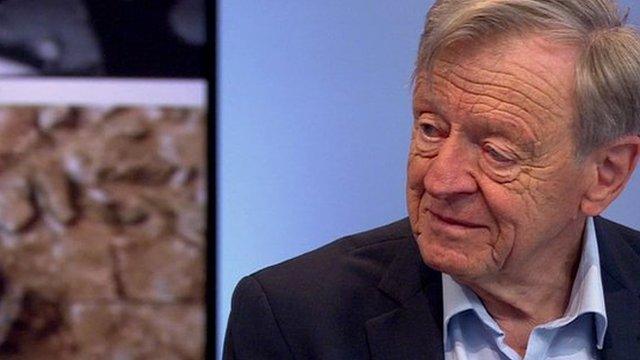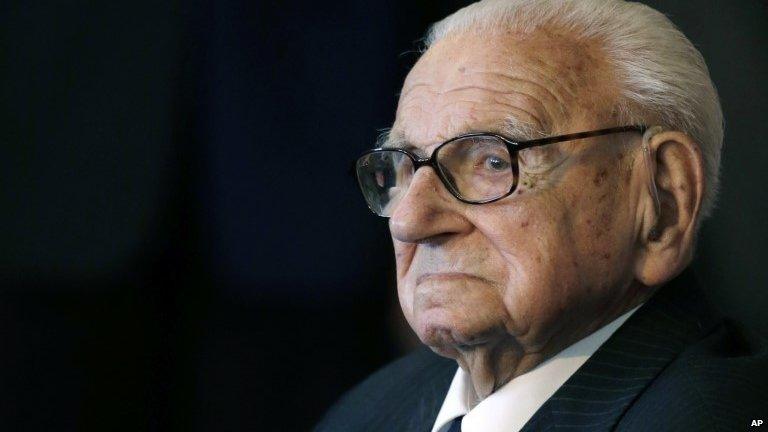Profile: Lord Alfred Dubs
- Published

Labour peer Lord Dubs arrived in the UK in 1939 as a six-year-old refugee fleeing the persecution of Jews in Nazi-occupied Czechoslovakia.
He was one of 669 children who escaped the Holocaust on trains from Prague organised by British stockbroker Sir Nicholas Winton.
After a 48-hour journey, the young Alf Dubs was met by his father, who had fled to England the day the Nazis entered Czechoslovakia, at Liverpool Street station in London.
His mother later came to the UK but his father died, leaving her with "no husband, no money, no family - nothing".
Lord Dubs later said he owed his life to Sir Nicholas Winton, saying that being Jewish in occupied Czechoslovakia was "not a recipe for survival".
"All the other Jews we knew went to concentration camps - the ones who stayed in Prague - and the majority didn't survive," he added.
Lord Dubs, a Czech-born British Labour Party politician, recalls how Sir Nicholas Winton rescued him from the Nazi regime
He was educated at Cheadle Hulme School in Cheshire and attended the London School of Economics before working as a local government officer.
In the 1970s he joined the Labour Party and lost three Parliamentary elections before becoming MP for Battersea South in 1979.
He was re-elected in 1983, but lost his seat in 1987 and lost again in 1992.
From 1988 to 1995 he was director of the Refugee Council, and he has held roles in numerous organisations including the Fabian Society and Liberty.
He became a peer in 1994 and served as Parliamentary Under Secretary of State at the Northern Ireland Office from 1997-99 and as chair of Labour peers from 2000-05.
In 2016 he proposed an amendment to the Immigration Bill which said the government should "make arrangements" to relocate and support 3,000 unaccompanied refugee children from other countries in Europe. MPs rejected the amendment.
- Published2 July 2015

- Published1 July 2015
